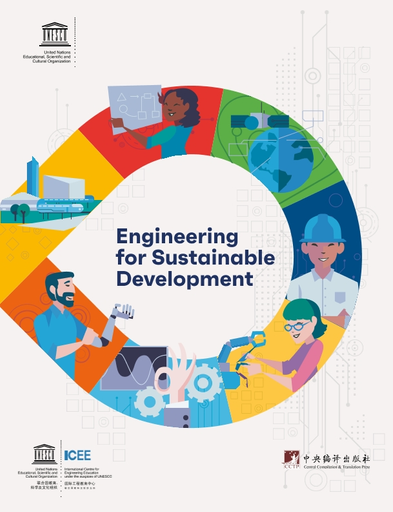The water cycle and its impact on the environment are taught to children in school, but as we progress into higher education, our understanding of these concepts tends to diminish. This is exacerbated by the lack of interdisciplinary education and training at higher levels. However, the National Education Policy (NEP) 2020 in India provides an opportunity to bring about a change by promoting a multidisciplinary and integrated curriculum, including environmental conservation.
The University Grants Commission (UGC) has released a revised curriculum framework for environmental education at the undergraduate level, drawing inspiration from NEP 2020. In the context of water resources management, it is interesting to examine how courses are designed and taught in India.
Water resources management presents a challenge in reducing the environmental impact of human activities while improving livelihoods. Unlike other resources, such as soil or air, the links between the physical aspects of water and the socio-economic, political, and institutional factors are complex. The nature of water as a resource, flowing downwards and being stored and distributed, contributes to these complexities. Engineering interventions like dams have shown mixed benefits, and the social and institutional challenges of water storage and distribution are significant. Inequities in distribution and allocation for human use often neglect environmental considerations, leading to alterations in the natural water cycle due to human activities and climate change.
Water education must address these complex linkages and avoid a narrow focus on technical or social aspects alone. The study conducted by Kansal and Venkatesh in 2020 highlighted that while there are 337 higher education institutions (HEIs) in India offering programs or courses related to water management, only 32 HEIs have dedicated departments or degree programs focused on water. These predominantly research-oriented institutions lack emphasis on teaching. Furthermore, there is a bias towards engineering and technological aspects in water education, with insufficient attention given to socio-political and institutional dimensions.
Integrated Water Resources Management (IWRM) is an approach that considers the social-biophysical linkages and aims to promote efficient, equitable, and sustainable water management in relation to other resources. It emphasizes participatory decision-making and recognizes the central role of women in water management. While IWRM has influenced water policy and interventions in India, its impact on water education programs and curricula has been limited.
One of the reasons for this limitation is the incentive structure in mainstream academic institutions, which tends to value disciplinary research over interdisciplinary work. Disciplinary research offers a sense of comfort, while interdisciplinary collaboration and curriculum development can be challenging. Interdisciplinary journals may not have high impact factors, and addressing applied problems like climate change and water management requires faculty to invest significant time and effort in outreach, which can hinder research progress and career prospects. Disciplinary hierarchies also hinder collaboration between engineers and social scientists in water resources management, as applied sciences are often prioritized over social sciences.
As a result, innovative and integrated curricula on water resources management have emerged from non-governmental research organizations and new liberal arts universities rather than mainstream academia. Institutions such as Tata Institute of Social Sciences, TERI School of Advanced Studies, and Shiv Nadar University have experimented with interdisciplinary water programs that combine natural sciences and social sciences. Government agencies like the Advanced Centre for Integrated Water Resources Management (ACIWRM) have also conducted training programs to promote an integrated approach to water management among engineers who have traditionally received conventional engineering education.
To address these issues, water education in India should adopt an integrated approach starting from primary school curricula. Higher education institutions should encourage interdisciplinary research and teaching on water, considering the nature and significance of this resource. Structural changes and the implementation of revised environmental education curriculum frameworks should align with the larger vision of NEP 2020.


